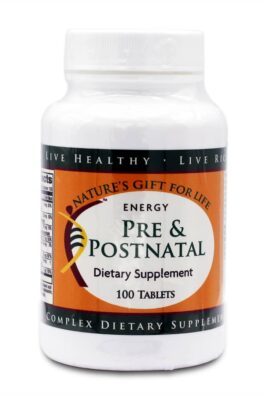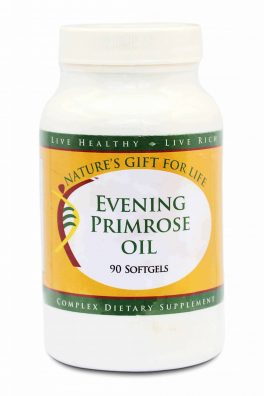Female Infertility
DOCTORS RECOMENDED PRODUCTS
-
Female Infertility
Pre/Post Natal Formula (Female Infertility)
0 out of 5(0)
Benefits of this product for Female Infertility
- Also contains folic acid which, taken prior to conception, can prevent birth defects like spina bifida and neural tube defects
- Helps to increase fertility by balancing ovulation.
>>>Read More
SKU: n/a - Also contains folic acid which, taken prior to conception, can prevent birth defects like spina bifida and neural tube defects
-
Female Infertility
Evening Primrose Oil (Female Infertility)
0 out of 5(0)
Benefits of this product for Female Infertility
- Supports the production of more fertile quality cervical fluid also known as “egg white cervical mucus”.
- It helps the sperm to stay alive for up to five days inside the fallopian tube, thus enabling conception to happen
>>>Read More
SKU: n/a - Supports the production of more fertile quality cervical fluid also known as “egg white cervical mucus”.
Female Infertility
Infertility is the inability to achieve a normal pregnancy after at least a year of unprotected intercourse (or after six months in women over age 35). It is also defined as the failure to carry a pregnancy to term. Affecting approximately one out of every six couples, infertility may be due to a medical problem in the man, woman, or both.
FEMALE INFERTILITY
When a cause of infertility exists within the female partner, it is referred to as female infertility. Female infertility factors contribute to approximately 50% of all infertility cases, and female infertility alone accounts for approximately one-third of all infertility cases. Age may also contribute to fertility concerns because, as a woman ages, her fertility decreases.
Read More...
The most common causes of female infertility include: fallopian tube damage or blockage, endometriosis, ovulation disorders, elevated prolactin, polycystic ovary syndrome (PCOS), early menopause, uterine fibroids, and pelvic adhesions.
• Infrequent ovulation – accounts for about 20% of female infertility and may be caused by one or more of the following: a hormone imbalance; a tumor or cyst; eating disorders such as anorexia or bulimia; alcohol or drug use; thyroid gland problems; excess weight; stress; intense exercise (that causes a significant loss of body fat); extremely brief menstrual cycles.
• Damage to the fallopian tubes or uterus – scarring in the fallopian tubes prevents the egg from traveling into the uterus and accounts for about 30% of cases. Abnormalities in the shape or lining of the uterus accounts for almost 20% of cases. Such
internal damage may be caused by one or more of the following: pelvic inflammatory disease; a previous infection; polyps in the uterus; endometriosis or fibroids; scar tissue or adhesions; chronic medical illness; a previous ectopic (tubal) pregnancy; a birth defect.
• Abnormal cervical mucus – prevents the sperm from reaching the egg or makes it challenging for the sperm to survive and penetrate the egg.
• Certain cancers – especially female reproductive cancers, which can severely impair female fertility. With all types of cancer, both radiation and chemotherapy may affect a woman’s ability to reproduce.
• Thyroid gland disorders – either too much thyroid hormone (hyperthyroidism) or too little (hypothyroidism) can interrupt the
menstrual cycle and cause infertility.
• Some medications – can cause temporary infertility. In most cases, fertility is restored when the medication is stopped. In the case of DES syndrome, the medication DES is given to women to prevent miscarriage or premature birth, but can result in fertility
problems for their children.
• Medical conditions associated with delayed puberty or amenorrhea – such as Cushing’s disease, sickle cell disease, HIV/AIDS, kidney disease and diabetes. All can affect a woman’s fertility.
• Excessive caffeine consumption – may reduce fertility in the female.
Proper testing should be performed to determine the potential cause of female infertility
Healthy Things You Can Do
• Eat a balanced diet, including varied sources of nutrition. Avoid weight-loss dieting at least 6 months prior to conception.
• Avoid extremes in body weight. Optimum body mass index is 20 to 27. Being overweight or underweight can affect your hormone production and cause infertility.
• Exercise moderately. Regular exercise is important, but if you’re exercising so intensely that your periods are infrequent or absent, your fertility may be impaired.
• Reduce stress, and get plenty of sleep.
• Adopt good personal hygiene and natural health practices. Do not use douche or artificial lubricants.
• Avoid exposure to toxins, radiation, PCBs, chemicals, heavy metals, and pollution.
• Eliminate or avoid all sources of caffeine prior to conception.
• Avoid coffee, saturated fats, tobacco, marijuana, cocaine, and alcohol. These substances may impair your ability to conceive and carry a healthy pregnancy. Excessive amounts of alcohol increase the hormone prolactin, which may disturb the menstrual cycle. Smoking reduces blood flow to the cervix and inhibits the action of cilia, the tiny hairs in the fallopian tubes that guide the egg toward the uterus.
• Speak with a doctor about any prescription drugs you are currently taking as some medications can affect one’s ability to conceive or carry a healthy full-term pregnancy.
• Avoid sexually transmitted diseases.
• Eat whole, natural, organic, hormone-free, unprocessed foods including whole grains, legumes, fresh vegetables, fruits, nuts, and
seeds.
• Eat alkaline rather than acidic foods. Add more cruciferous vegetables like cabbage, broccoli, Brussels sprouts, and cauliflower to your diet for I3C (a natural estrogen metabolizer).
• Get plenty of essential fatty acids preferably from deep-sea fish and unprocessed plant sources including: flaxseed and pumpkinseed oils, eggs, soy products, raw nuts and seeds, and dark-green and winter vegetables like broccoli, cauliflower, beets, carrots, kale, collards, cabbage, turnips, rutabaga, and Brussels sprouts.
• Identify any suspected food sensitivities and allergies. Eliminate those foods from your diet.
• Drink at least six to eight glasses of water daily.
• Limit sugar and refined carbohydrates.


